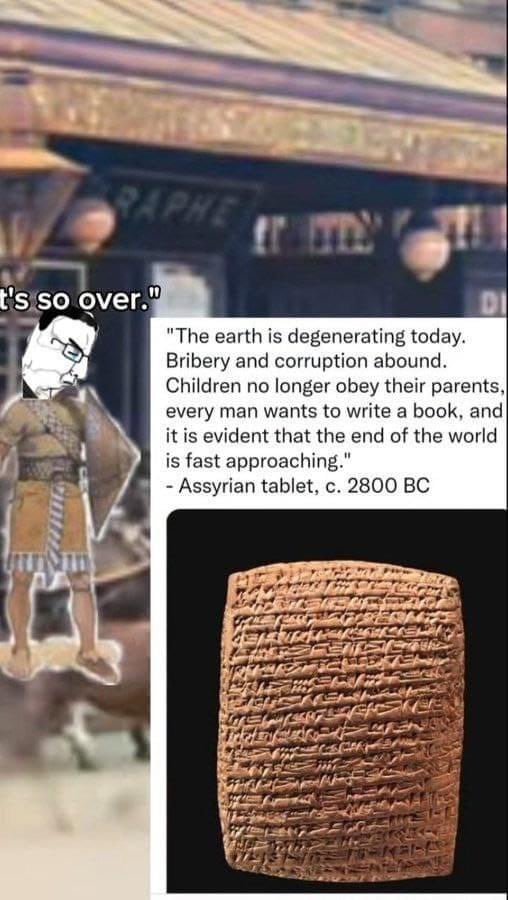this post was submitted on 07 Apr 2024
756 points (97.1% liked)
memes
10336 readers
1207 users here now
Community rules
1. Be civil
No trolling, bigotry or other insulting / annoying behaviour
2. No politics
This is non-politics community. For political memes please go to [email protected]
3. No recent reposts
Check for reposts when posting a meme, you can only repost after 1 month
4. No bots
No bots without the express approval of the mods or the admins
5. No Spam/Ads
No advertisements or spam. This is an instance rule and the only way to live.
Sister communities
- [email protected] : Star Trek memes, chat and shitposts
- [email protected] : Lemmy Shitposts, anything and everything goes.
- [email protected] : Linux themed memes
- [email protected] : for those who love comic stories.
founded 1 year ago
MODERATORS
you are viewing a single comment's thread
view the rest of the comments
view the rest of the comments

IIRC "books" were a medieval-period invention. Before the common era, everythign would have been scrolls or tablets. The first codices wouldn't have existed until about 100BCE in Rome. So, assuming that this is (roughly) what a cuneiform tablet was saying, I wonder what the actual work used for 'book' was, and what more accurate translation there would be, if we had the relevant cultural understanding?
But, more so than that - the earliest proto-novel that we know of is The Tale of Genji, that dates to roughly the 11th century ~~B~~CE (Edit: this is a typo; it is definitely CE, not BCE). Which makes the question of what kind of 'books' this is supposed to refer to even more interesting.
Or--alternatively--is it just a shitpost?
I found this on skeptics stack exchange. Supposedly, it's a hoax/urban legend that goes back way before the internet. (The entire stack exchange page on this topic is fun to read, btw)
One writer found this same quote in a slightly earlier source dating to 1908.
Yet another writer noted that there was no Chaldea but ...
https://skeptics.stackexchange.com/questions/4923/was-this-quote-on-a-clay-tablet-about-unruly-kids-written-by-an-assyrian